Photochemical Etching is well-known in the field of specialized processing. However, among the general public or in non-specialized fields, this technology is less familiar. Due to its high precision, versatility, and flexibility, Photochemical Etching holds a significant position in certain industries. As the technology continues to be promoted and its applications expand, more and more people are becoming aware of it.
If you are not very familiar with Photochemical Etching, this article will guide you through understanding this technology step by step. We will introduce its processing steps, advantages and disadvantages, as well as the common industries where it is used. We hope this will be helpful to you. If you still have questions or concerns after reading, you can also contact us via the contact details or form at the end of the article.
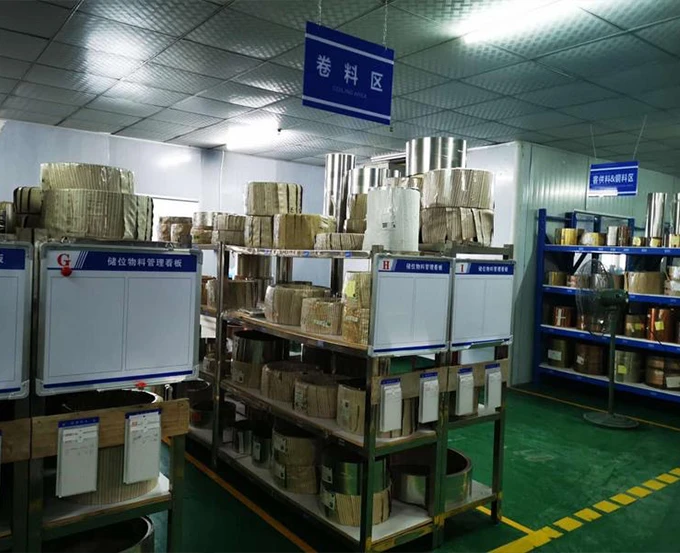
Photochemical Etching Processing Steps
Photochemical Etching is a precise metal processing technique. Below are the detailed steps of the process:
1. Customer Provides Drawings and Confirms Details and Requirements:
Before processing begins, the customer needs to provide detailed design drawings and confirm all details and technical requirements with the manufacturer. This ensures that the final product meets the customer’s expected standards.
2. Metal Preparation and Surface Cleaning:
After selecting the appropriate metal material, its surface is cleaned to ensure that there are no contaminants that could affect the subsequent product quality.
3. Photoresist Coating, Exposure, and Development:
The photoresist is evenly applied to the cleaned metal surface. The design pattern from the drawings is then exposed onto the photoresist using ultraviolet light. The exposed areas of the photoresist are removed through a development process, revealing the metal areas to be etched.
4. Etching:
The developed metal plate is placed into a chemical solution for Etching. The metal areas not protected by the photoresist are corroded/dissolved, forming the desired metal patterns and structures.
5. Photoresist Removal and Cleaning:
After Etching is completed, the remaining photoresist is removed, and the metal part is thoroughly cleaned to ensure it is free of contaminants and meets the final usage requirements.
6. Quality Inspection:
Finally, the product undergoes quality inspection to ensure it meets the expected precision and performance standards.
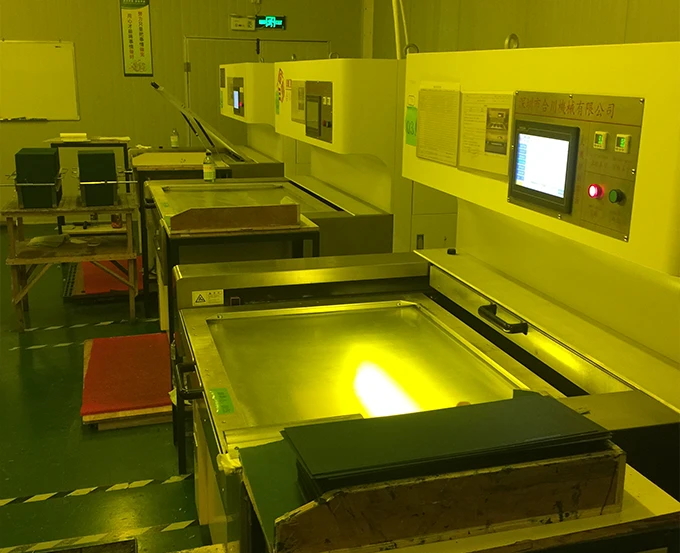
Advantages of Photochemical Etching
Photochemical Etching technology offers significant advantages over traditional processing methods, especially in high-precision and complex structural machining. Below, TMN provides a detailed introduction based on the technical characteristics of its own factory:
1. High Precision Machining
Traditional processes, such as mechanical machining (milling, turning), often face limitations when dealing with complex and miniature structures due to factors like tool wear and material deformation, making it difficult to ensure machining precision. This is particularly problematic when working with thin walls and small apertures, where dimensional deviations and deformations frequently occur.
TMN has focused on Photochemical Etching technology for many years. This technology can precisely remove material without contact, achieving an accuracy of up to +/- 0.03mm. The non-mechanical nature of this process eliminates the impact of tool wear on precision, allowing TMN to easily handle extremely small and complex geometries, ensuring that each part meets strict tolerance requirements.
2. Wide Material Compatibility
Traditional processing methods such as laser cutting and stamping are also widely applicable to various materials. However, they can pose challenges when working with high-hardness metals or extremely thin materials, often leading to issues like thermal deformation or surface damage.
Photochemical Etching is suitable for a variety of metal materials, including stainless steel, copper, aluminum, titanium, and nickel. Since this process uses chemical solutions for Etching, rather than high temperatures or high pressures, it effectively avoids problems like thermal deformation and material damage, making it particularly suitable for processing extremely thin and high-hardness metals.
3. Flexibility and Versatility
Traditional processing techniques often require specialized molds or tools to produce specific shapes, which not only increases production costs but also limits design flexibility. This is a major issue, especially in the production of small batches or customized products, where high mold costs and long lead times are common.
Photochemical Etching eliminates the need for molds, requiring only a design based on the customer’s provided drawings for processing. This significantly shortens production cycles and reduces costs. The process can easily achieve complex pattern processing, making it ideal for small-batch production and diverse customization needs, without incurring additional mold costs for each design.
4. Surface Quality and Detail Performance
Traditional methods like machining and stamping may result in high surface roughness or loss of detail when handling complex details, particularly in fine patterns or small apertures, where burrs or irregular edges are likely to occur.
Photochemical Etching technology provides excellent surface quality and detail performance while maintaining high precision. This process does not produce mechanical stress during material removal, resulting in extremely smooth edges and clear details without burrs, making it particularly suitable for manufacturing fine patterns and small apertures.
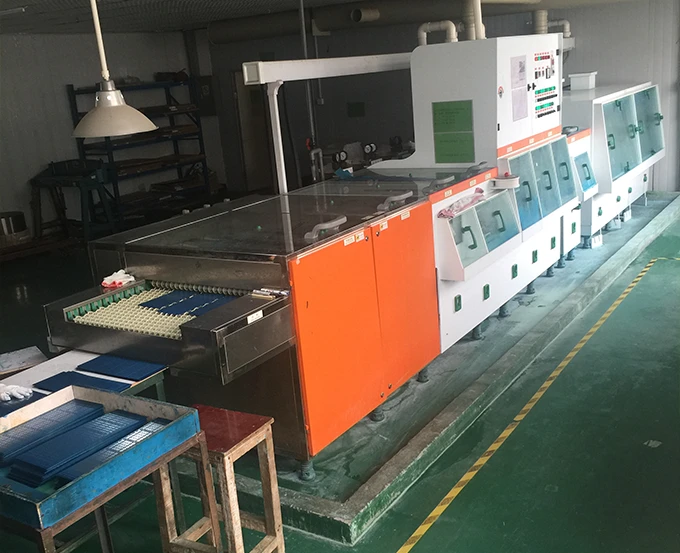
Which Industries and Products Are Best Suited for Photochemical Etching?
As we have discussed, Photochemical Etching offers high precision, flexibility, and the ability to handle complex geometries. Due to these qualities, the technology has become increasingly well-known as it continues to evolve, with its applications expanding into various industries. Below, TMN provides examples of some typical industries and their products that are ideal for Photochemical Etching:
1. Electronics and Semiconductor Industry
Encoder Disks: Precision components used to measure angular displacement or rotational position, requiring extremely high machining precision and consistency.
Lead Frames: Metal frames used in integrated circuit packaging, requiring intricate patterns and precise dimensional control.
Vapor Chambers (VCs): Used for efficient thermal management, where Photochemical Etching can precisely create the complex internal channel structures within the chamber.
2. Medical Device Industry
Micro-scalpels: Tiny blades used in precision surgeries, requiring burr-free smooth edges and high precision.
Implants: Such as stents and filter meshes, these products require extremely high biocompatibility and precise dimensions.
Guidewires and Micro Tools: Tools used in minimally invasive surgeries, where Photochemical Etching can produce extremely fine details.
3. Aerospace Industry
Metal Filter Meshes: Precision meshes used in aircraft engines, fuel systems, and more, requiring high-temperature and high-pressure resistance while maintaining high precision.
Sensor Components: Sensitive elements used for measuring pressure, temperature, etc., requiring complex geometries and high reliability.
Microstructures: Lightweight structural components and supports, requiring high strength and minimal error.
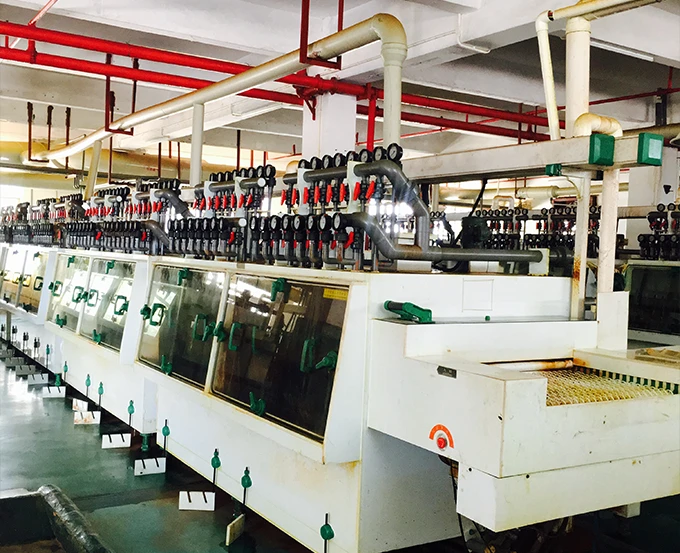
4. Automotive Industry
Fuel Cell Bipolar Plates: Photochemical Etching can create extremely fine flow channel designs, ensuring the efficient operation of fuel cells.
Precision Filter Meshes: Used in filtration systems for engines and other critical components, requiring high precision and durability.
Radiator Fins: Used in electric vehicles and high-performance cars for thermal management, requiring efficient heat conduction and precise shapes.
5. Craft and Decoration Industry
Custom Metal Ornaments: Such as Christmas ornaments and decorative items, Photochemical Etching allows for the fine processing of intricate designs without the need for mold fees.
Badges and Medals: Photochemical Etching can produce detailed relief effects and complex design patterns.
Nameplates and Signs: For signage requiring high durability and clarity, Photochemical Etching provides corrosion-resistant and wear-resistant surface treatments.
3D Model Puzzle Components: Used for creating complex 3D model puzzles, Photochemical Etching can precisely cut and engrave fine details, making it ideal for small-batch, high-quality custom production.
6. Precision Machinery Industry
Flat Gears and Micro Parts: Small components in precision machinery, Photochemical Etching can process complex gear shapes and intricate microstructures.
Spring Contacts: Used in precision machinery, these require high flexibility and durability.
Micro Connectors: Photochemical Etching can manufacture extremely precise connector components, ensuring efficient electrical performance.
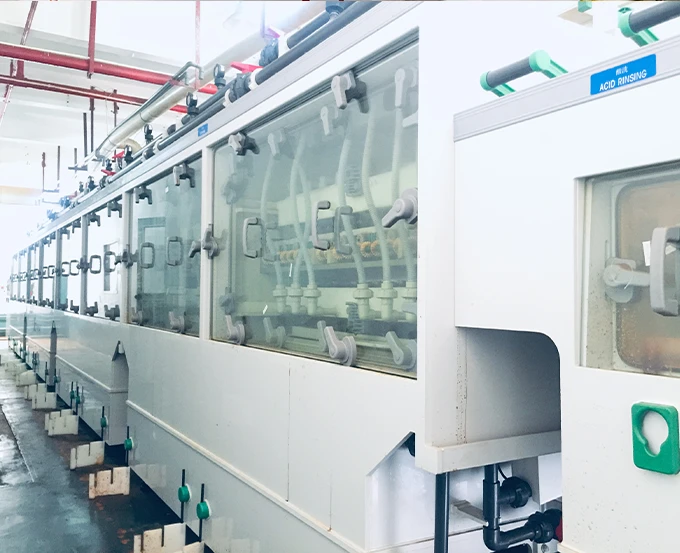
TMN: A Specialized Custom Photochemical Etching Factory
TMN is a custom factory with extensive experience in the field of Photochemical Etching, dedicated to providing high-precision and high-complexity metal component processing services for various industries. With years of technical expertise and advanced equipment, TMN can accurately handle complex geometric structures and ensure that every product meets strict tolerance requirements. Our Photochemical Etching process not only excels in precision but also boasts a high adaptability to various materials, easily accommodating metals such as stainless steel, copper, aluminum, and titanium.
TMN’s flexible production capabilities eliminate the need for molds, enabling us to quickly respond to customer design changes. Whether it’s small-batch customization or large-scale production, we offer efficient and cost-effective solutions. Our products are widely used in high-demand industries such as electronics, medical devices, aerospace, and automotive, covering everything from VC vapor chambers to precision filter meshes, fuel cell bipolar plates, and intricate 3D model puzzle components. As an industry leader, TMN has earned widespread recognition and trust with its outstanding craftsmanship and customer-first service philosophy. Contact us today to receive customized Photochemical Etching solutions.
You can easily reach us by phone, WeChat, and WhatsApp at +8613603056883, or via email at lydia.sales1@tmnetch.com .
Read more:
What is the Impact of Photochemical Etching on Precision Manufacturing?
Photochemical etching: an efficient, precise and flexible solution
How To Choose Between Metal Etching and Metal Engraving?
